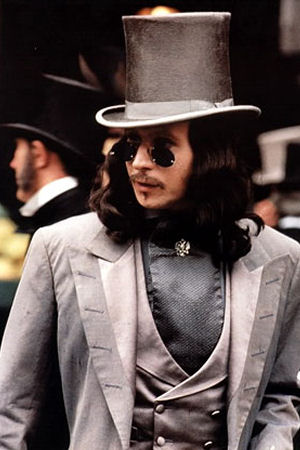Rispondi al commento
Untitled
PAPERISSIMA! Gli errori dei romanzi rosa
RFM: romance funniest mistakes
by March Rose
A new, tasty “finding” for our growing RFV collection ^_* !
If you find any mistake that you’d like to share with us, do not hesitate and send me a mail or a message through www.splinder.com with title + author of the books and description of the mistake, and I’ll post your RFM by giving you the credits.
But beware, do not waste your time with trivial mistakes such as misspelling of foreign fords etc. : we are looking for REAL mistakes – the equivalent of a Roman centurion with a Swatch at his wrist, okay ? No kidding with trifles girls, only blunders will do!
La nostra raccolta degli errori dei romanzi rosa si arricchisce di una nuova gustosa “scoperta” ^_* !
Se trovate qualche errore anche voi, non esitate a mandarmi un’email o un messaggio tramite www.splinder.com, citando titolo e autore del libro e descrivendo l’errore, e noi lo posteremo per voi citandovi come scopritori della “chicca”.
Attenzione però, lasciate perdere le banalità, ad esempio, parole straniere scritte con errori ortografici etc: cerchiamo i VERI errori, insomma l’equivalente di un centurione romano con lo Swatch al polso, chiaro ? Qui non si scherza, ragazze: si sbaglia sul serio !
WHOSE BLOOD IS MORE BLUE?
**** This juicy mistake has been detected in the Italian translation of the novel by Alessandra and checked in the original US version by Marina C.; Lynne Connolly, English romance writer and friend (visit her website at http://www.lynneconnolly.com) helped us to verify and confirm it.
Thanks to all of you girls for your contribution!
In “The Sheik” by Connie Mason, at page 314 of of the US edition, we find the following dialogue:
“Who is the Earl of Lanford?” Zara asked. “You told me your mother resides in England. Is the earl a relative?”
“I am Jamal Brantley, the Earl of Lanford,” Jamal admitted. “Before Grandfather died I was merely a marquis. I inherited his title last year in addition to vaste estates in Ireland and England and a fortune to go along with it.”
Alas, this situation is impossible according the English peerage system. Let’s see why.

When an English peer has a heir (his eldest son, or the eldest son’s eldest son), he inherits a title with no legal validity (a so-called “courtesy title”) that doesn't make him a peer. It is always a lesser title to the main one, and it doesn't carry aristocratic privileges, i.e. the heir doesn't have a seat in the House of Lords and the title doesn't contain any entailed lands.
So for instance, we may have:
FATHER: The Duke of Argyll
SON: Marquess of Lorne
GRANDSON: Earl of Campbell
since a duke outranks a Marquess, and a marquess outranks an earl.
Or we may also have:
FATHER: The Marquess of Hertford
SON: Earl of Yarmouth
GRANDSON: Viscount Beauchamp
In our case, since Jamal’s grandfather is an earl, the only possible courtesy title for our hero is therefore viscount or even a mere, generic “Lord”; certainly not marquess, which outranks an earl.
And now, who dares explain to poor Jamal that becoming an earl he’s been in fact not promoted, but… demoted?
CHI HA IL SANGUE PIU’ BLU ?
**** Questa graziosa “papera” è stata scoperta nell’edizione italiana del romanzo da Alessandra e verificata da Marina C. nell’edizione originale americana. Lynne Connolly, scrittrice inglese di romance e cara amica (visitate il suo sito web : http://www.lynneconnolly.com) ci ha aiutato a verificarla e confermarla.
Grazie a tutte voi per il vostro prezioso contributo!
Nel romanzo "Lo Sceicco" di Connie Mason (titolo originale: “The Sheik”), troviamo questo dialogo:
“Chi è il conte di Lanford?” chiese Zara. “Mi hai detto che tua madre vive in Inghilterra. E' una sua parente?”
“Io sono Jamal Brantly, conte di Lanford,” ammise lui. “Prima della morte di mio nonno ero solo un marchese. Ho ereditato il suo titolo lo scorso anno insieme con numerosi terreni in Irlanda e in Inghilterra, e un ingente patrimonio.” ( capitolo 17, pagina 224 dell’edizione Mondolibri).
Ahimè, questa situazione è impossibile per il sistema nobiliare inglese. Vediamo perché.

Quando un Pari d’Inghilterra ha un erede (il suo figlio primogenito, o, nel caso di un nipote, il figlio primogenito del suo primogenito), questi eredita un titolo puramente onorifico (il cosiddetto “titolo di cortesia”) che non fa comunque di lui un Pari del regno. E’ sempre un titolo inferiore rispetto a quello del capofamiglia, che non gli attribuisce nessuno dei privilegi tipici dell’aristocrazia, cioè non gli dà il diritto ad avere un posto nella camera dei lords e non è nemmeno associato a proprietà terriere.
Quindi, ad esempio, potremmo avere questa situazione:
PADRE: Duca di Argyll
FIGLIO: Marchese di Lorne
NIPOTE: Conte di Campbell
perchè un duca è superiore a un marchese, e un marchese è superiore a un conte.
Oppure potremmo avere:
PADRE: Marchese di Hertford
FIGLIO: Conte di Yarmouth
NIPOTE: Visconte Beauchamp
perchè un marchese è superiore a un conte, e un conte è superiore a un visconte.
Nel nostro caso, visto che il nonno di Jamal è un conte, gli unici titoli di cortesia possibili per il nostro eroe sono quindi quello di visconte oppure, semplicemente, il titolo generico di “Lord”; ma sicuramente non quello di marchese, che è superiore al conte.
E adesso, chi va a spiegare al povero Jamal che diventando un conte in realtà non è stato promosso, bensì… degradato?














Commenti recenti
7 anni 8 settimane fa
7 anni 8 settimane fa
7 anni 8 settimane fa
7 anni 8 settimane fa
7 anni 8 settimane fa
7 anni 9 settimane fa
7 anni 9 settimane fa
7 anni 9 settimane fa
7 anni 9 settimane fa
7 anni 9 settimane fa